

The latest Corruption Perceptions Index from Transparency International indicates the failure of most countries to control corruption, and the organization believes this is leading to a “crisis of democracy around the world.”
In the nonprofit’s 2018 ranking of corrupt countries, more than two-thirds scored below 50 out of a possible 100. The index reviews 13 surveys and expert assessments to gauge public sector corruption in 180 countries and territories, giving each a score from zero (highly corrupt) to 100 (very clean). Berlin-based Transparency International has been compiling its index since 1995.
Denmark and New Zealand top the index with 88 and 87 points, respectively. There are 20 countries that score at a 20 or less, including Somalia, South Sudan, and Syria. Somalia is considered a haven for terrorists and pirates. South Sudan and Syria have been devastated by armed conflict in recent years, leading to human rights abuses and dysfunctional governments.
Many of the most corrupt countries are among the poorest in the world, and most are nations the U.S. state department warns citizens against traveling to.
Click here to see the most corrupt countries in the world.
Among the nations registering a decline are Hungary and Turkey, which decreased by eight and nine points, respectively, over the last five years. Hungary recorded its lowest score for political rights since communism fell in 1989, reflecting the erosion of rule of law and democratic institutions. Turkey, where President Recep Tayyip Erdoğan thwarted a coup d’etat in 2016, saw its ranking fall because of a crackdown on public demonstrations and independent media.
The United States lost four points from last year and posted a score of 71, dropping out of the top 20 for the first time since 2011. Transparency International said the score reflects a time when the U.S. is experiencing threats to its system of checks and balances as well as an erosion of ethical norms at the highest levels of leadership.
The highest scoring region in the ranking is Western Europe and the European Union, with an average score of 66. The lowest scoring regions are sub-Saharan Africa, with an average score of 32, and Eastern Europe and Central Asia, with an average of 35.
Transparency International’s analysis of the 2018 Corruption Perceptions Index incorporates data from the Democracy Index produced by The Economist Intelligence Unit, the Freedom in the World Index produced by Freedom House, and the Annual Democracy Report produced by Varieties of Democracy. The index draws on 13 surveys and expert assessments to measure public sector corruption in 180 countries and territories, giving each a score from zero (highly corrupt) to 100 (very clean). The population figures come from World Bank’s 2017 population estimates.
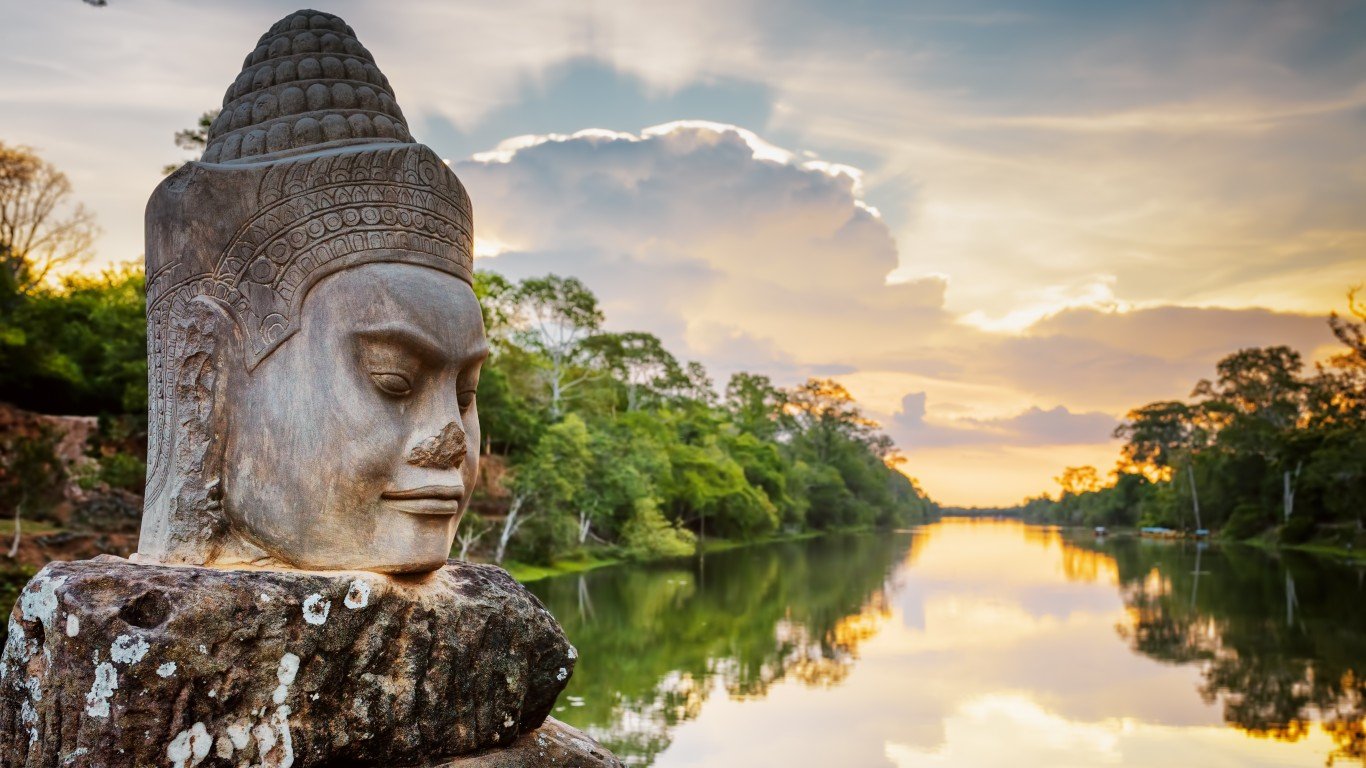
20. Cambodia
> Corruption index score (0-100): 20
> Population: 16.0 million
> Region: Asia Pacific
The governing party of Cambodia dissolved the main opposition party in 2017 and banned it for five years. The country is also knocked down for human trafficking. The State Department said the Cambodian government has not fully complied with the “minimum standards for the elimination of trafficking” but is endeavoring to do so.
[in-text-ad]
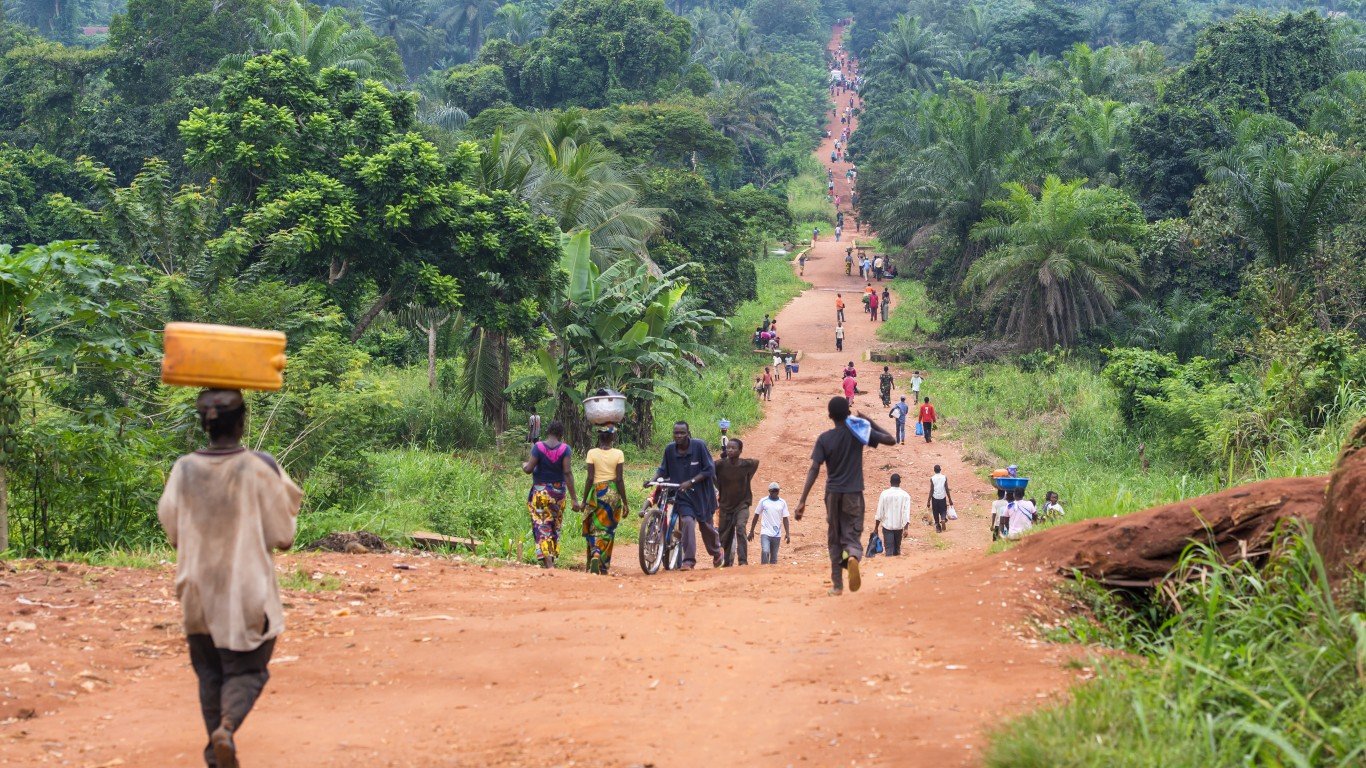
19. Democratic Republic of the Congo
> Corruption index score (0-100): 20
> Population: 81.3 million
> Region: Sub-Saharan Africa
December 2018 elections in the Democratic Republic of the Congo were the country’s first electoral transfer of power in 59 years. Human trafficking is also common in the country, although the majority of trafficking is internal and perpetrated by groups outside the government’s control.
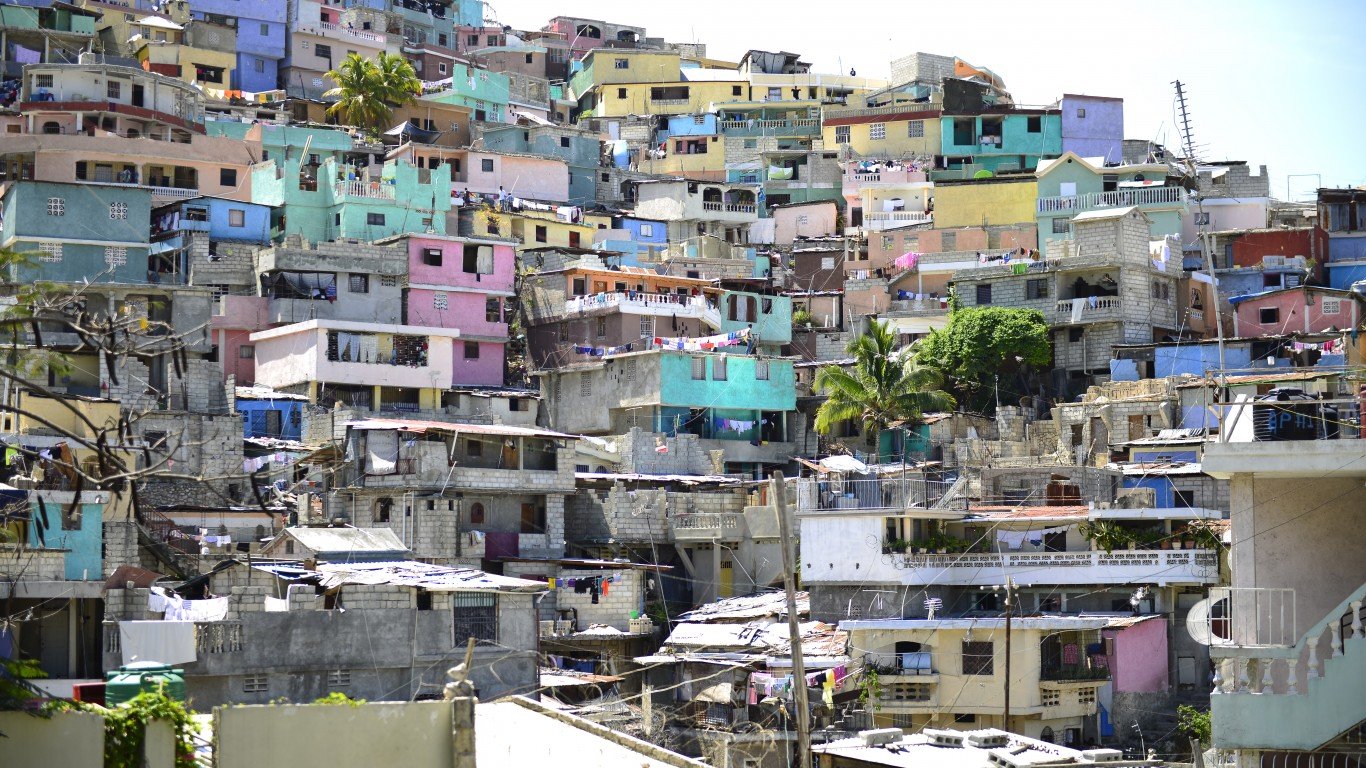
18. Haiti
> Corruption index score (0-100): 20
> Population: 11.0 million
> Region: Americas
Haiti is the poorest country in the Western Hemisphere. Demonstrations erupted in Haiti last fall as the scope of government corruption widened. One of the issues involves the misuse of at least $3 billion in funds over the past decade that were sourced through a discounted oil program operated by the PetroCaribe energy cooperative. Transparency International ranks Haiti as the second-most corrupt nation in the Western Hemisphere behind Venezuela.
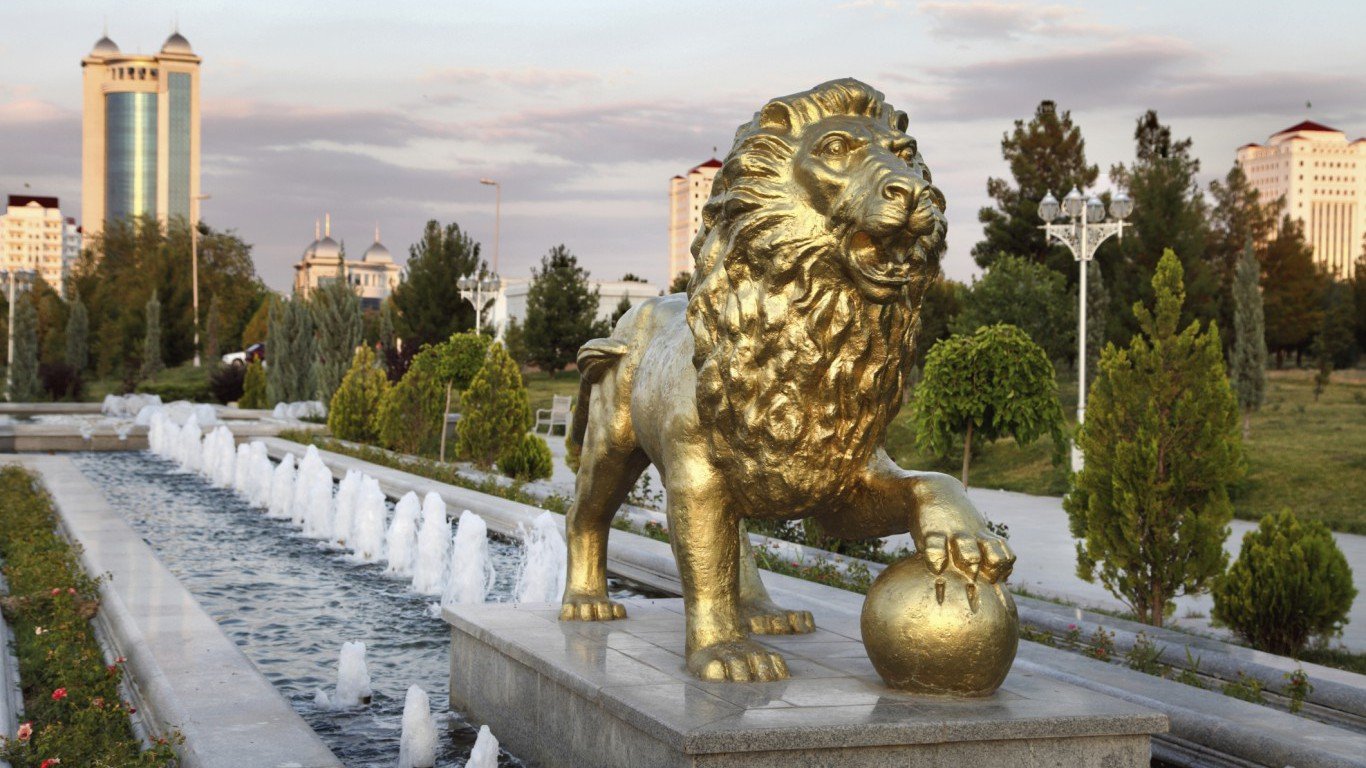
17. Turkmenistan
> Corruption index score (0-100): 20
> Population: 5.8 million
> Region: Eastern Europe & Central Asia
President Gurbanguly Berdimuhamedow has held office since 2007. He won re-election in 2012 and 2017 with more than 97% of votes cast. The nation he leads suffers from rampant corruption in virtually every sector of the economy. Bribery is common in securing procurement contracts, and the nation’s public administration rests on patronage connections.
[in-text-ad-2]
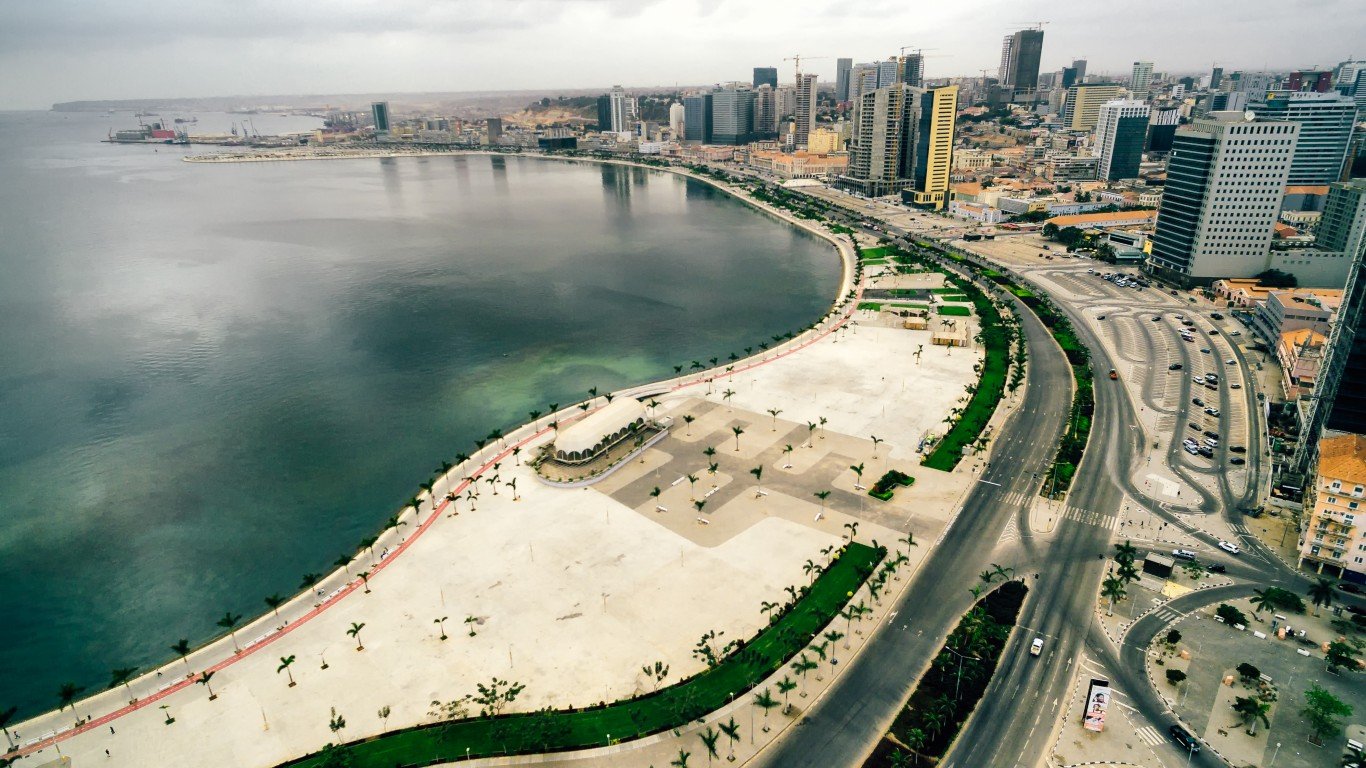
16. Angola
> Corruption index score (0-100): 19
> Population: 29.8 million
> Region: Sub-Saharan Africa
Angola is a member of OPEC and is said to hold proven reserves of some 9 billion barrels of oil and 11 trillion cubic feet of natural gas. Angola’s Transparency International score improved by four points this year following efforts by President Joao Lourenco to fight corruption.
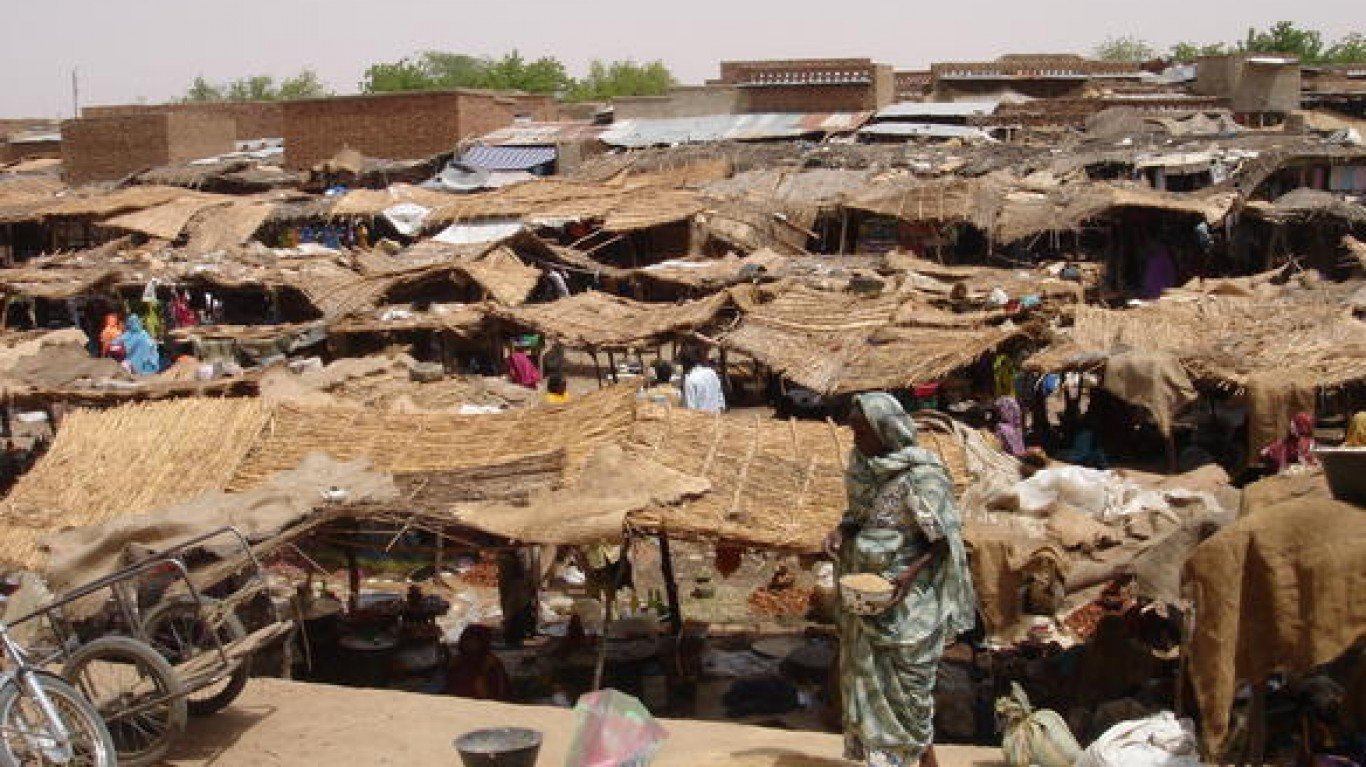
15. Chad
> Corruption index score (0-100): 19
> Population: 14.9 million
> Region: Sub-Saharan Africa
Chad has held democratic, but ostensibly flawed, elections since 1996. The country has suffered from attacks by terrorist groups like Boko Haram and ISIS in the Lake Chad region, resulting in a recent call from the U.N. High Commissioner for Refugees for aid to more than 7 million displaced persons. Nepotism and cronyism are facts of life in Chad — one of the world’s poorest nations — because of weak rule of law. Anti-corruption legislation targets bribery and stipulates strong penalties but is not widely enforced.
[in-text-ad]
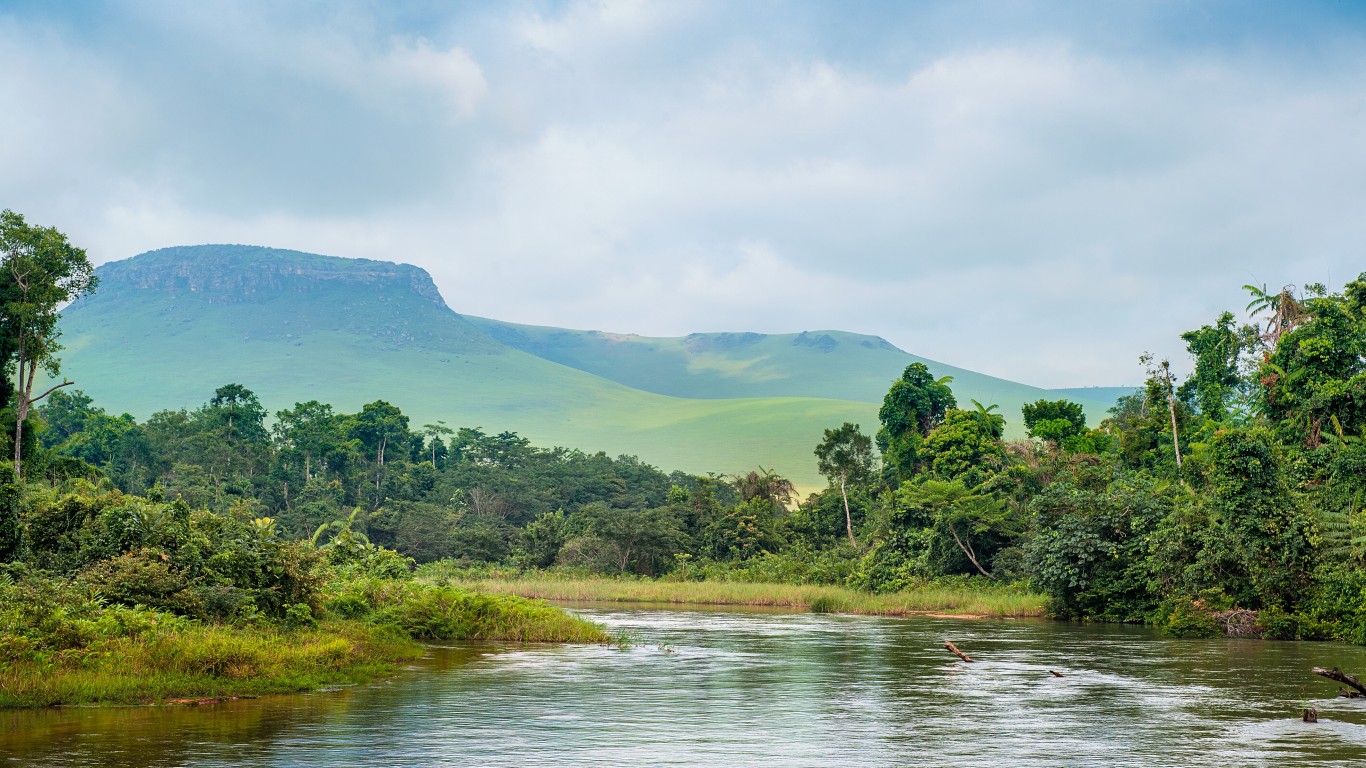
14. Republic of the Congo
> Corruption index score (0-100): 19
> Population: 5.3 million
> Region: Sub-Saharan Africa
Republic of the Congo, while not as well-endowed as Angola, has 1.9 billion barrels of proven oil reserves, most of them offshore. Corruption is rampant in the African nation, with almost every area of the economy affected. President Sassou Nguesso tightly holds power and government institutions are vulnerable to political interference and patronage. Though there are regulatory protocols addressing corruption, implementation is erratic.
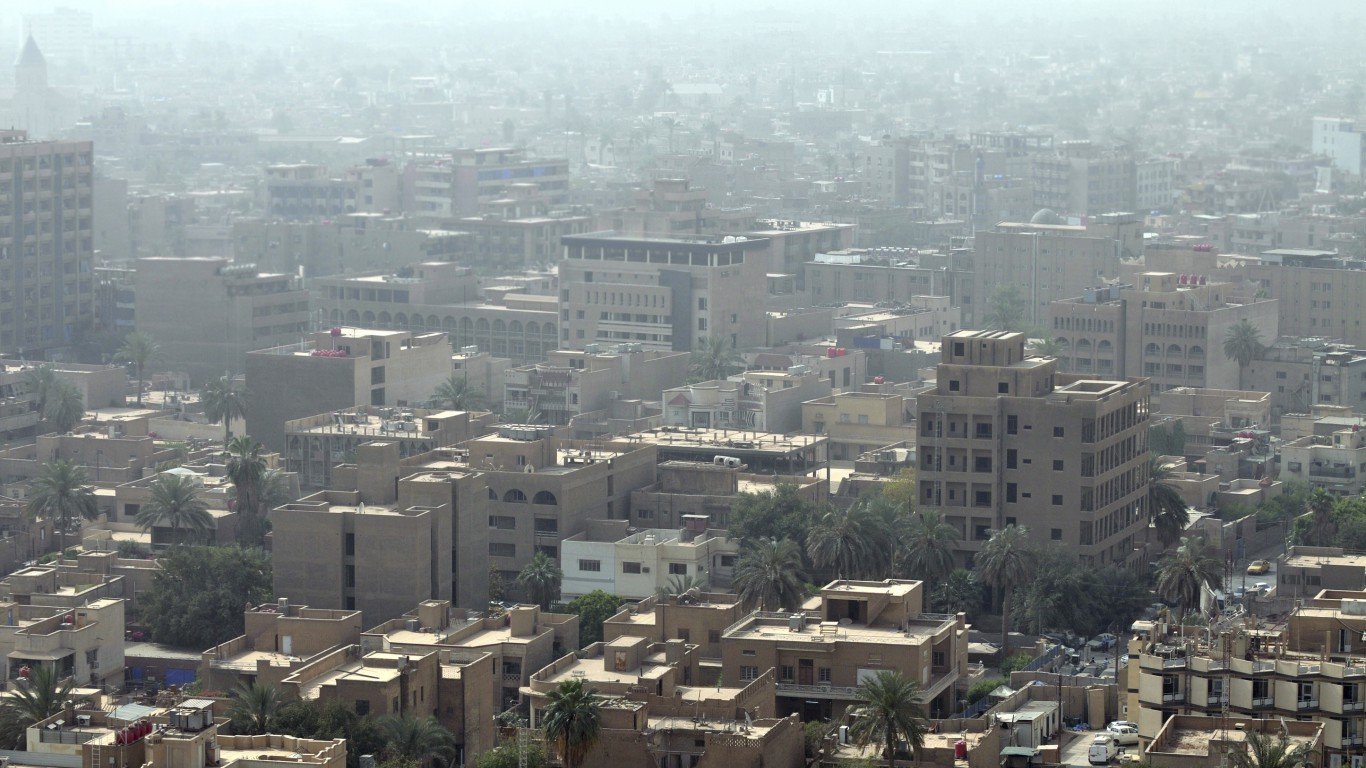
13. Iraq
> Corruption index score (0-100): 18
> Population: 38.3 million
> Region: Middle East & North Africa
Iraq’s record for transparency and combating corruption has been undistinguished, but Prime Minister Adil Abdul-Mahdi has promised that his government will “put an end” to corruption in the same way the country overcame the forces of ISIS.
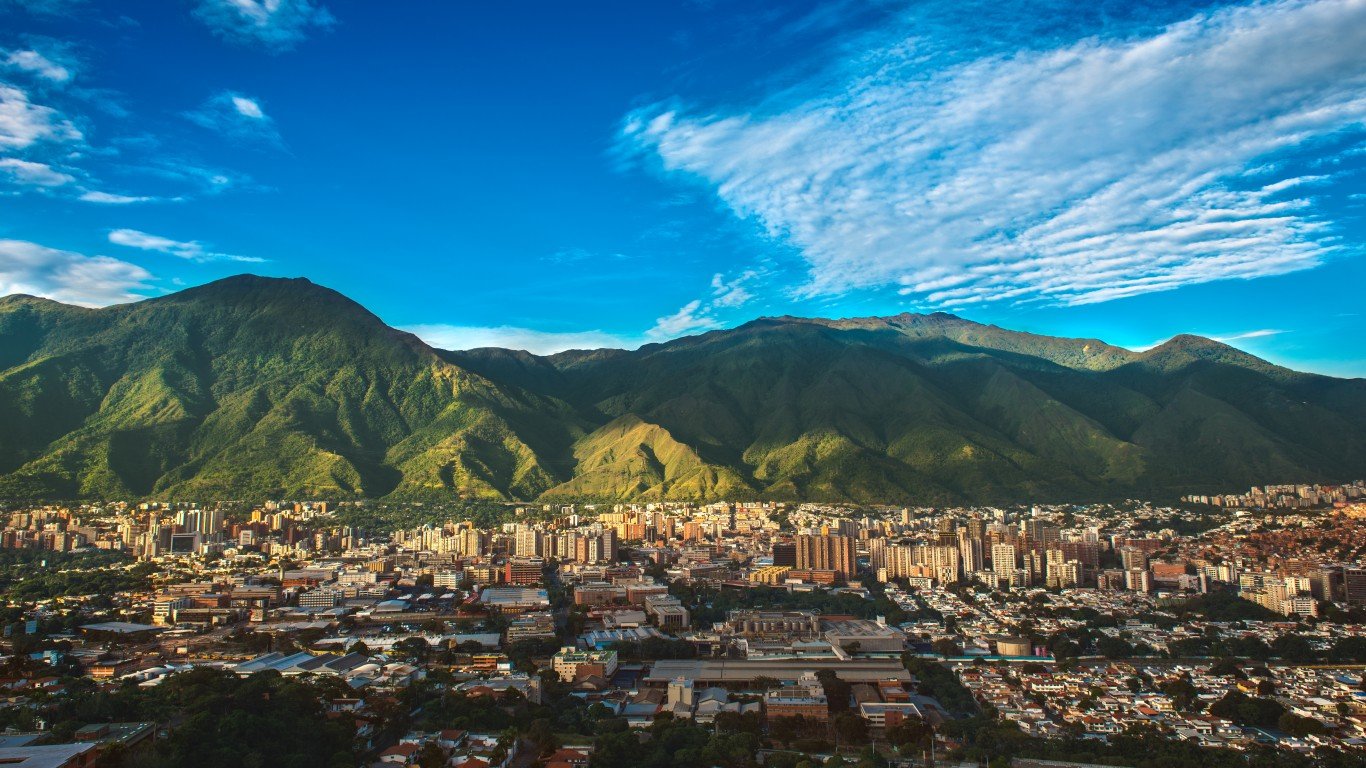
12. Venezuela
> Corruption index score (0-100): 18
> Population: 32.0 million
> Region: Americas
Venezuelan President Nicolás Maduro has been in power since 2013, but his days as the country’s leader appear to be numbered amid allegations that he rigged the last election. He is being challenged by opposition leader Juan Guaidó, who has been formally recognized by the Trump administration as the country’s leader. In November, the country’s former treasury chief pleaded guilty to taking $1 billion in bribes.
[in-text-ad-2]
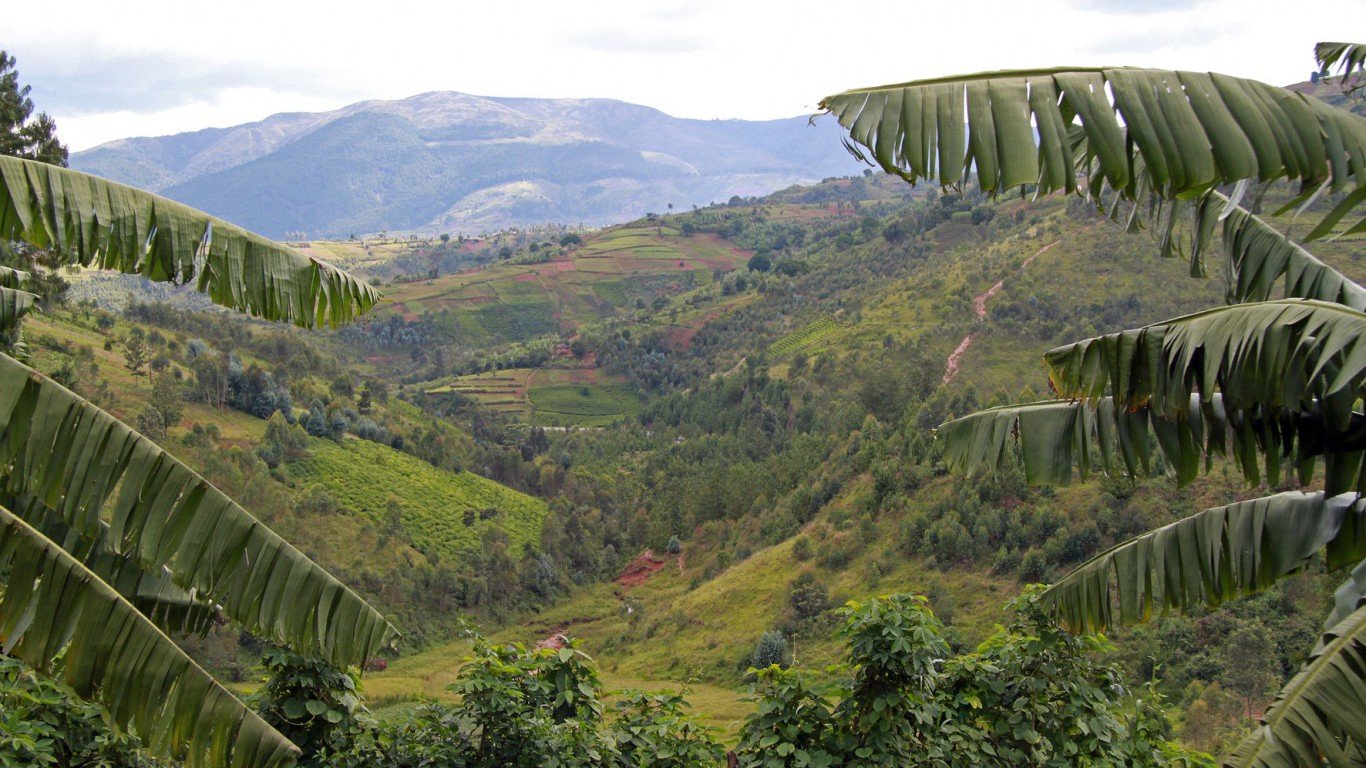
11. Burundi
> Corruption index score (0-100): 17
> Population: 10.9 million
> Region: Sub-Saharan Africa
Faustin Ndikumana, chairman of a civil rights group in Burundi, said last August that corruption is part of everyday life in the country and that being corrupt is no longer considered taboo.
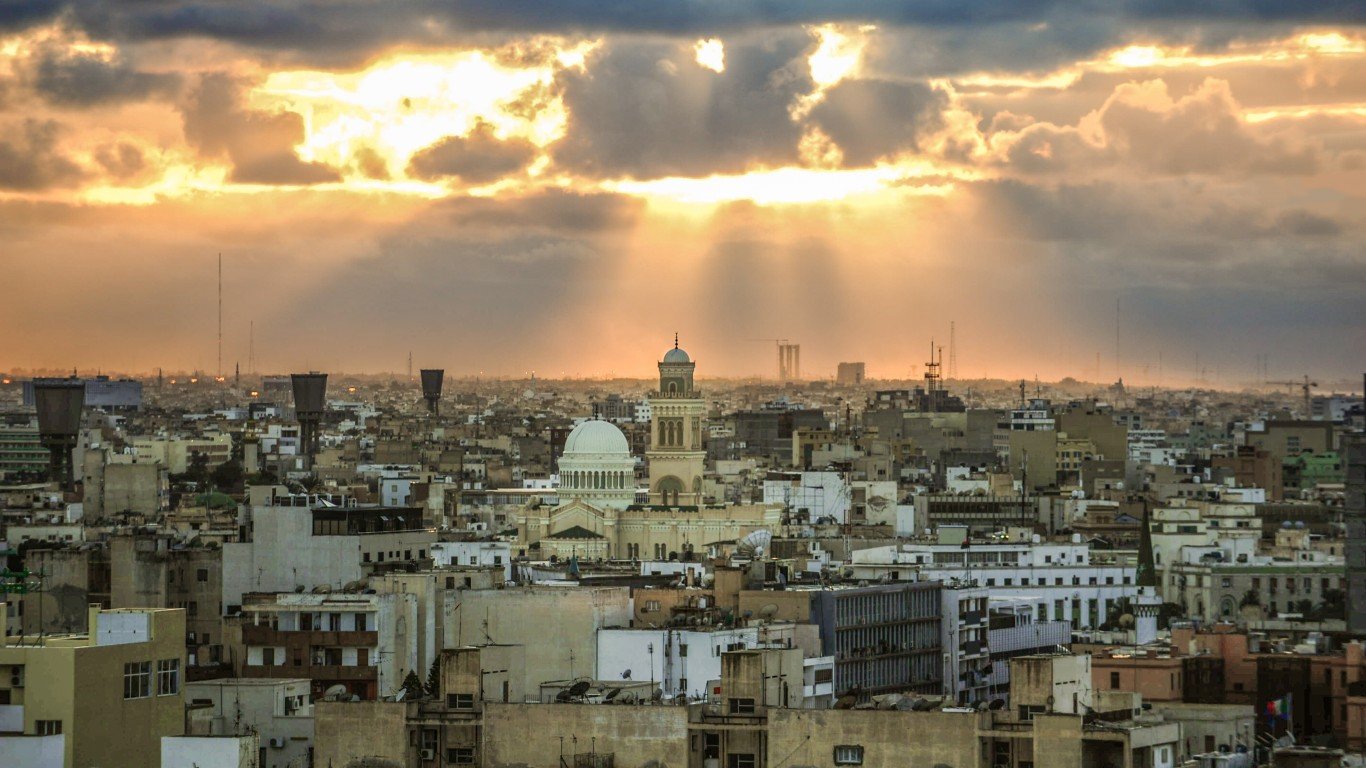
10. Libya
> Corruption index score (0-100): 17
> Population: 6.4 million
> Region: Middle East & North Africa
Libya has struggled to regain civil peace since the fall of strongman Muammar Gaddafi. Warring militias “are the greatest threat for Libya” according to the head of the country’s national oil company, who added that this is true for the whole society, not just the oil industry.
[in-text-ad]
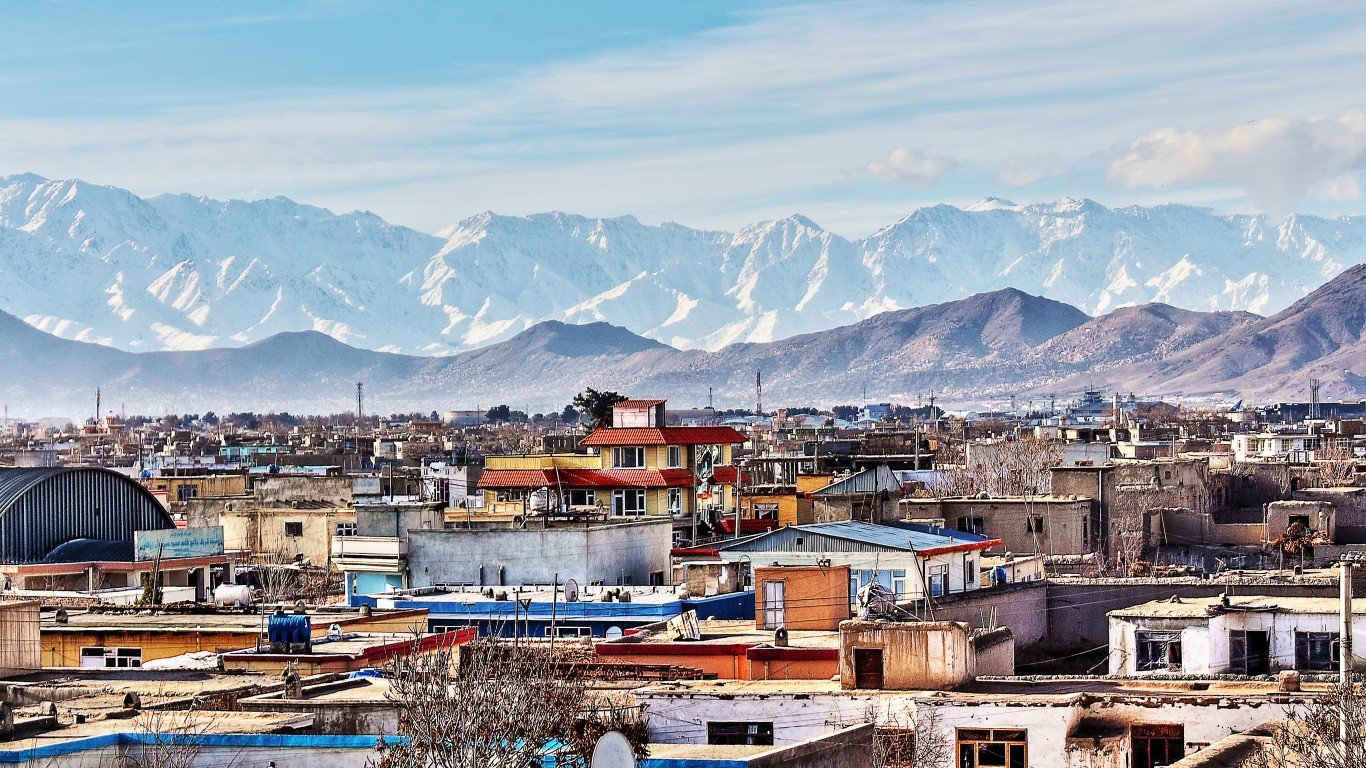
9. Afghanistan
> Corruption index score (0-100): 16
> Population: 35.5 million
> Region: Asia Pacific
War-torn Afghanistan improved its standing somewhat in the rankings this year but nearly half the country remains outside of government control. Partly that’s due to the success that extremist groups like the Taliban enjoy in recruiting new members and partly it’s because of highly visible government corruption and nepotism.
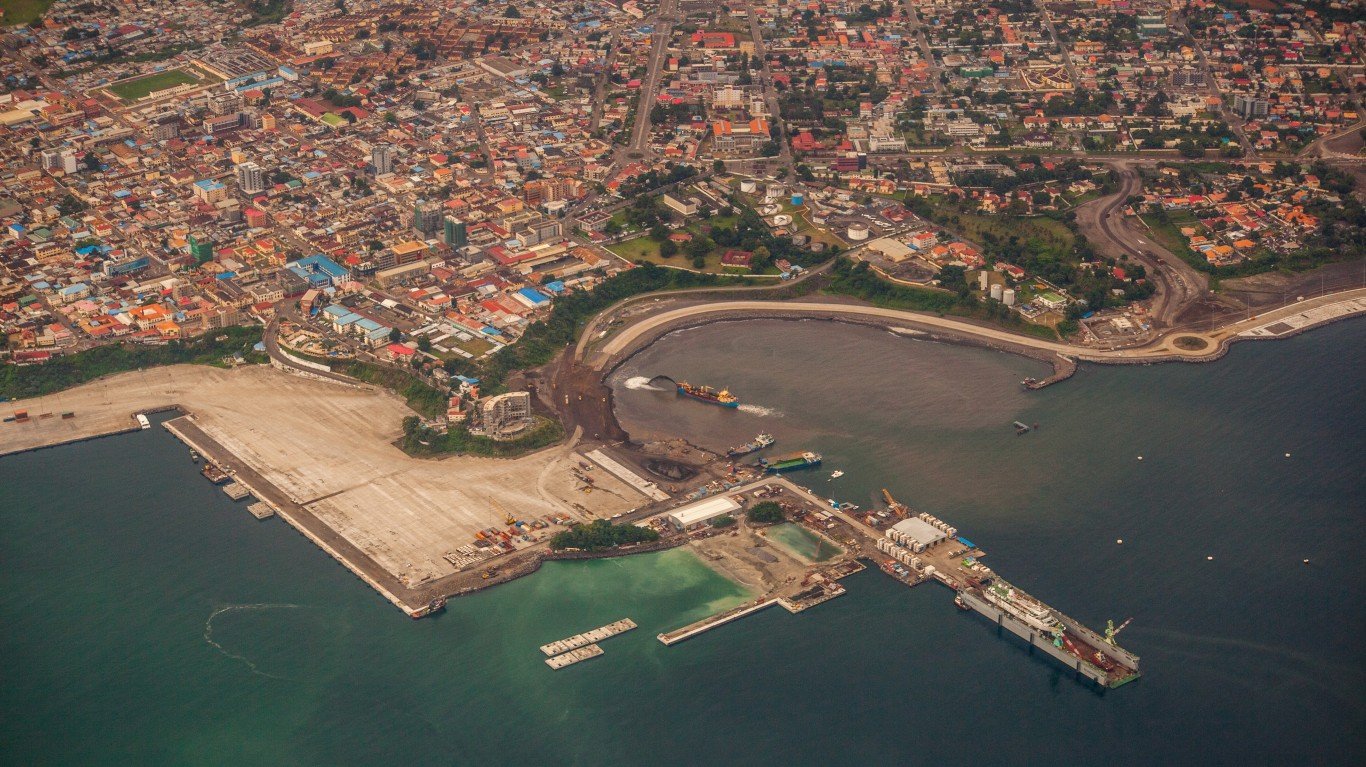
8. Equatorial Guinea
> Corruption index score (0-100): 16
> Population: 1.3 million
> Region: Sub-Saharan Africa
One of Africa’s smallest countries, Equatorial Guinea’s fortunes have fallen as revenue from its oil exports has declined. The country’s human trafficking problems are also getting worse, not better.
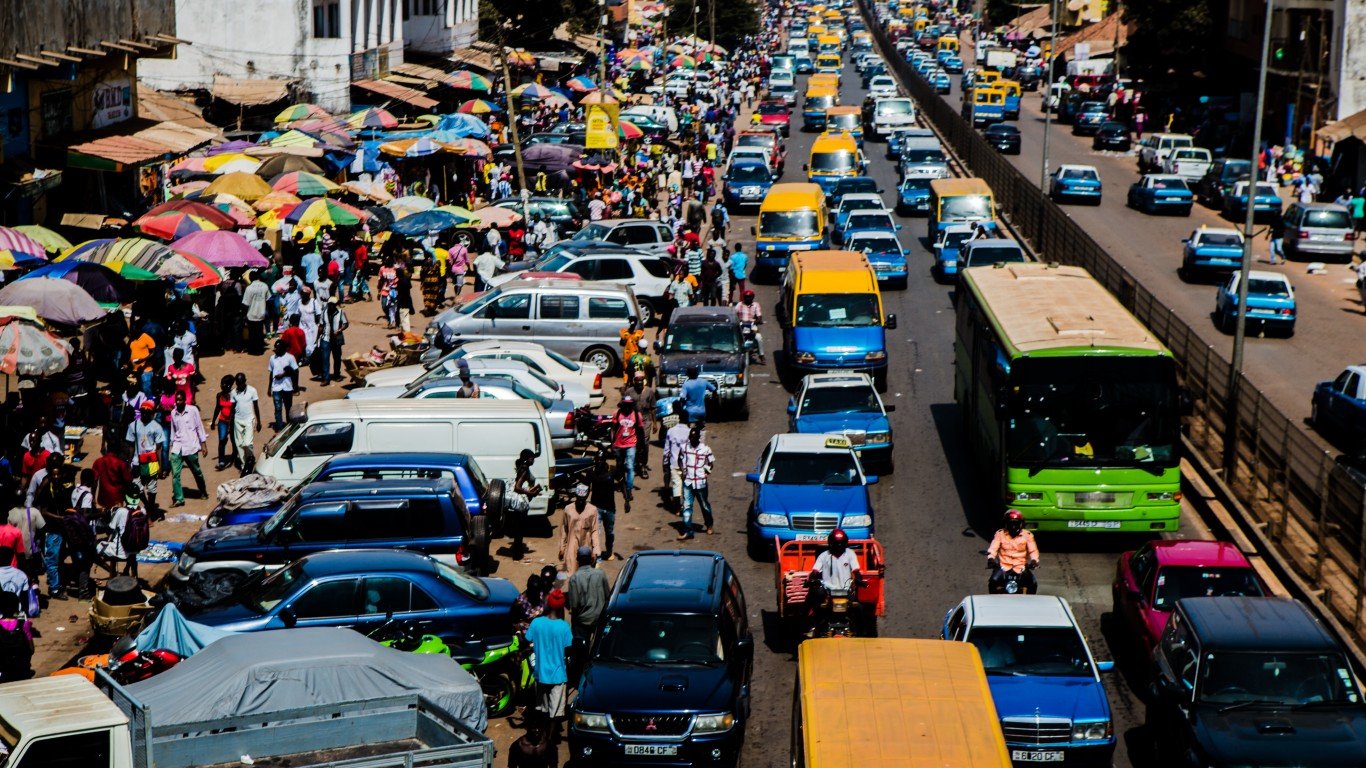
7. Guinea Bissau
> Corruption index score (0-100): 16
> Population: 1.9 million
> Region: Sub-Saharan Africa
Two-thirds of the country’s population remain below the poverty line and the economy is based on cashews (80% of export revenue) and fishing. Its location has made Guinea-Bissau a haven for smuggling drugs into Europe. The country lacks even minimal standards for eliminating human trafficking, nor is the government trying to develop any.
[in-text-ad-2]
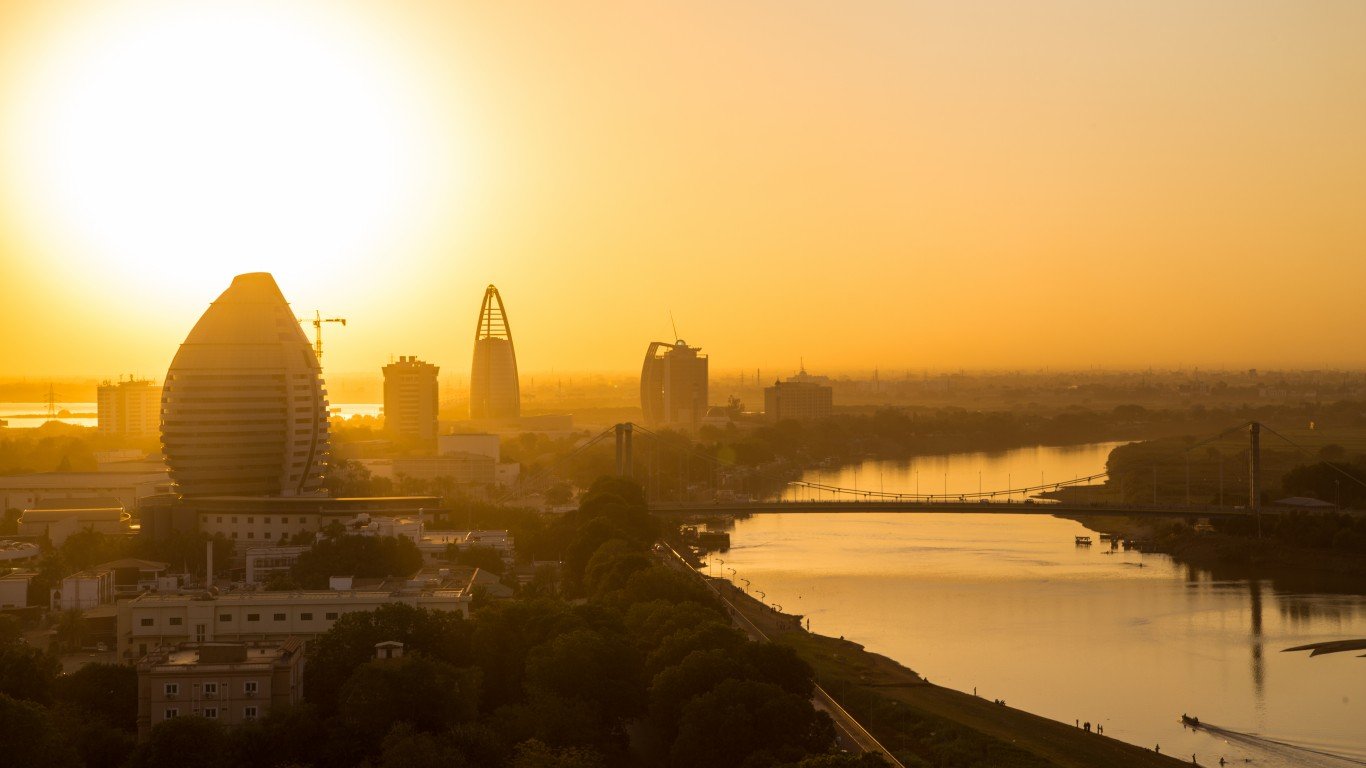
6. Sudan
> Corruption index score (0-100): 16
> Population: 40.5 million
> Region: Sub-Saharan Africa
Ruled for nearly 30 years by indicted war criminal Omar al-Bashir, Sudan’s ongoing dispute with South Sudan has resulted in the displacement of more than 2 million people. The prime minister recently said that the country is making progress in holding accountable those responsible for corruption.
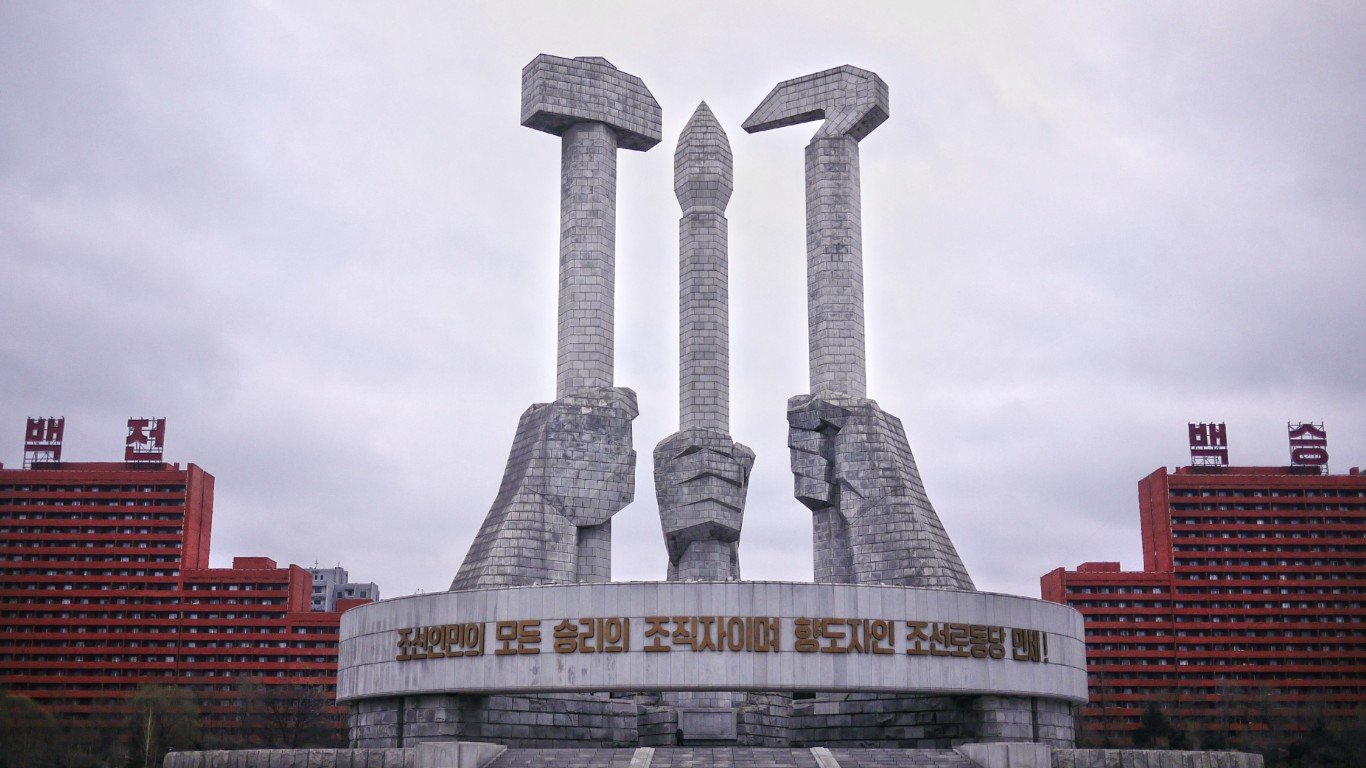
5. Korea, North
> Corruption index score (0-100): 14
> Population: 25.5 million
> Region: Asia Pacific
North Korea is a closed society completely dominated by the communist party. Transparency International gives the nation a score of 14 based on “widespread and enduring corruption across the country.” A BBC report said aid groups estimate that as many as 2 million people have died since the mid-1990s because of severe food shortages caused by natural disasters and economic mismanagement.
[in-text-ad]
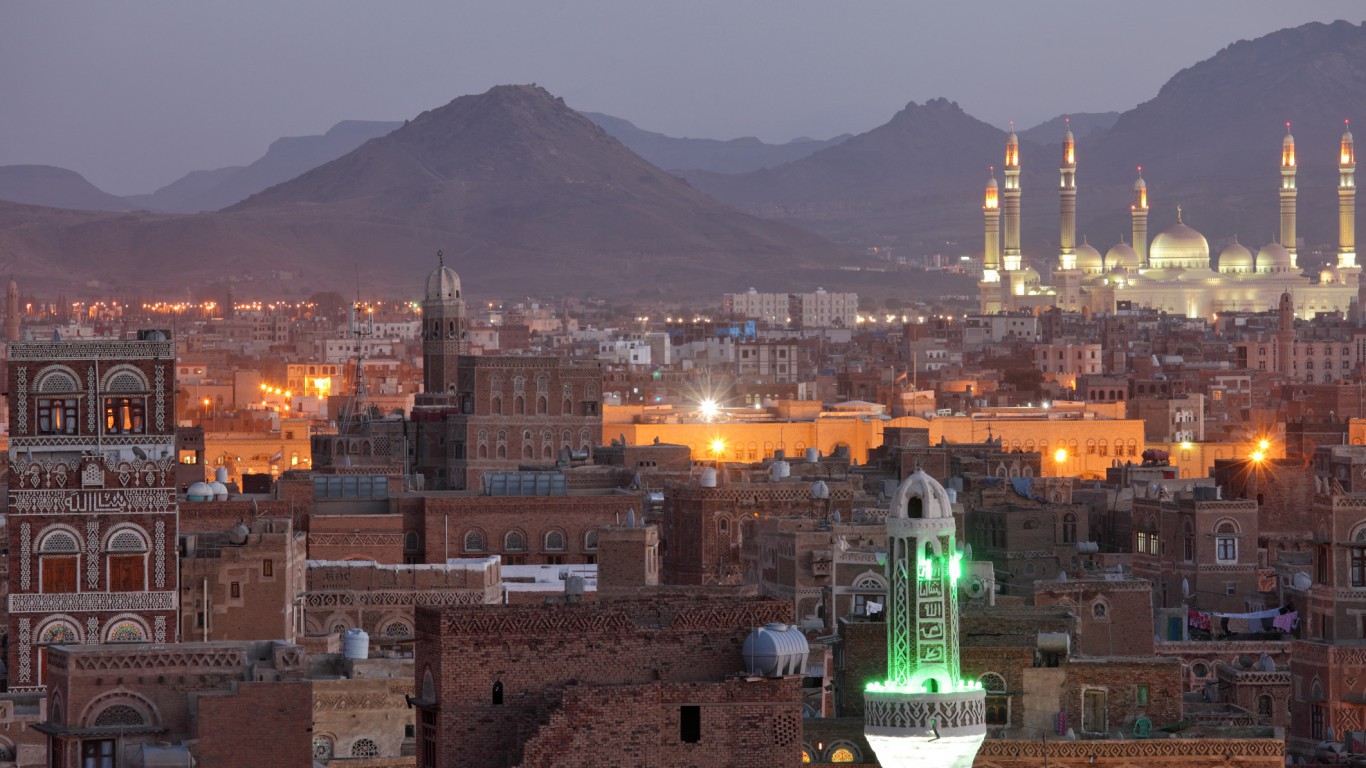
4. Yemen
> Corruption index score (0-100): 14
> Population: 28.3 million
> Region: Middle East & North Africa
Yemen is another country Americans have been told not to visit because of terrorism, civil unrest, and armed conflict. The nation at the southern end of the Arabian peninsula has been engulfed in civil war since 2011. The conflict has led to the destruction of infrastructure including housing, medical facilities, schools, and utilities. Even before the war, there were concerns about corruption. Conflicts-of-interest safeguards in Yemen were deemed “very weak,” according to a 2010 report by Global Integrity.
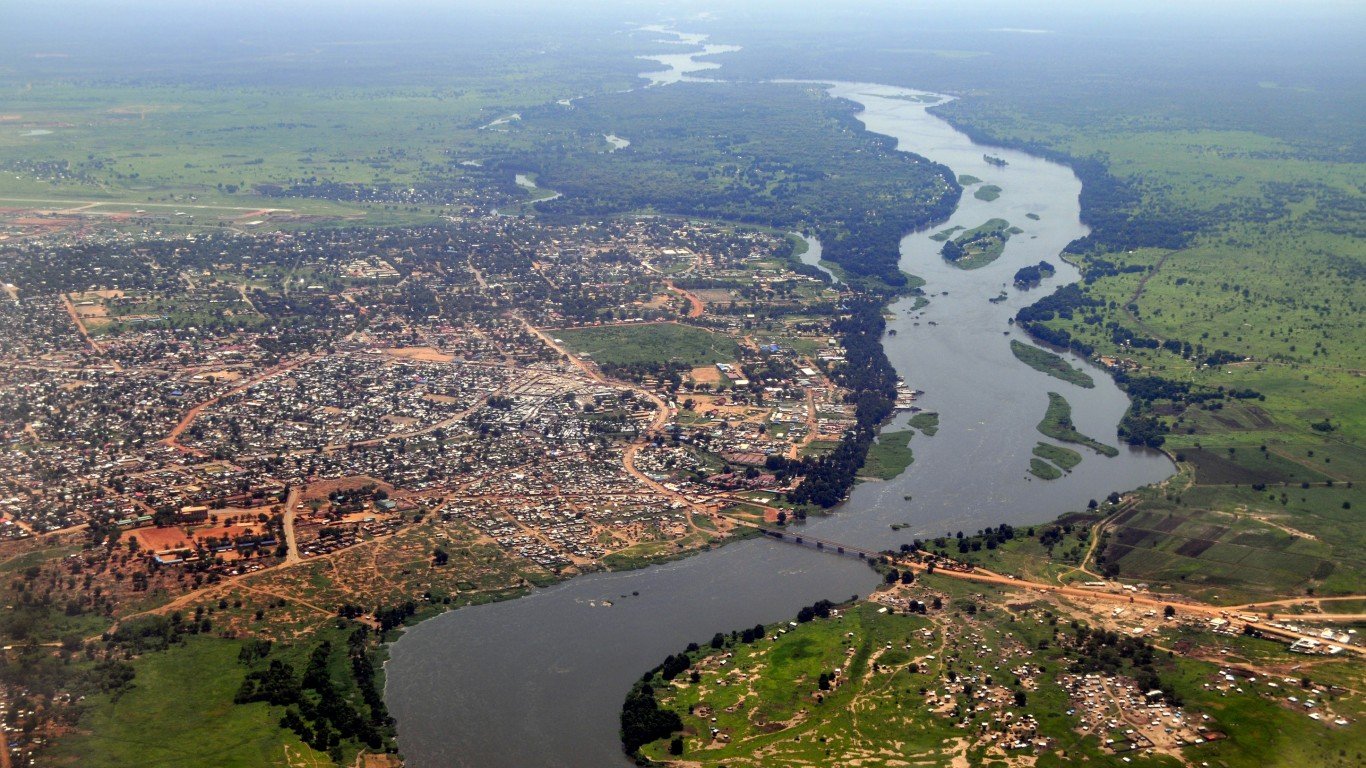
3. South Sudan
> Corruption index score (0-100): 13
> Population: 12.6 million
> Region: Sub-Saharan Africa
South Sudan, created in 2011 and one of the world’s newer nations, descended into civil war in 2013. That conflict has displaced some 4 million people. Media is tightly controlled in South Sudan and journalists risk arrest and possibly worse. State-owned South Sudan TV has little competition. Legal institutions in South Sudan are weak.
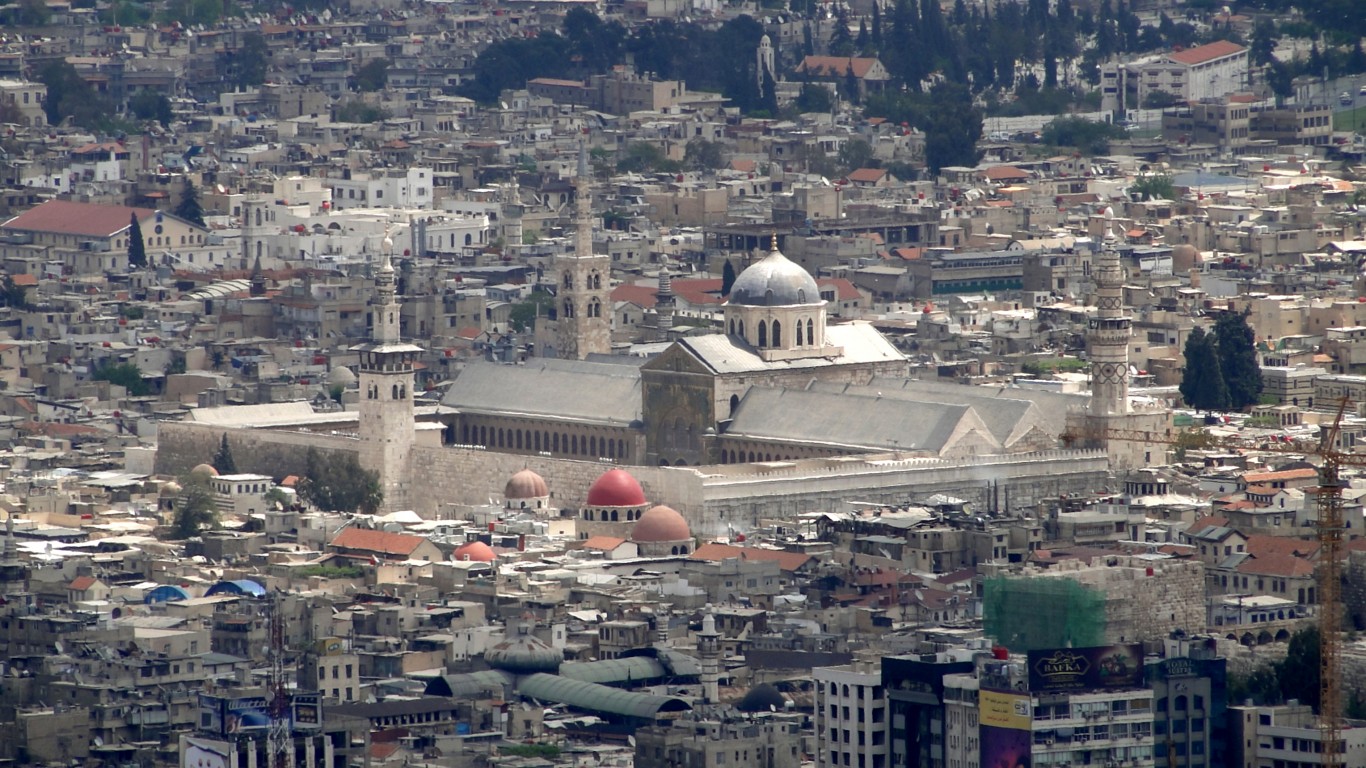
2. Syria
> Corruption index score (0-100): 13
> Population: 18.3 million
> Region: Middle East & North Africa
The Middle Eastern nation has been racked by civil war since the “Arab Spring” uprising in 2011. The conflict has killed 250,000 and created 5.6 million refugees. President Bashar al-Assad has used heavy-handed methods, including poison gas, against his own people to try and retain control of the country. Besides the human toll, the World Bank estimates the civil war has cost Syria about $226 billion in cumulative GDP losses from 2011 to 2016.
[in-text-ad-2]
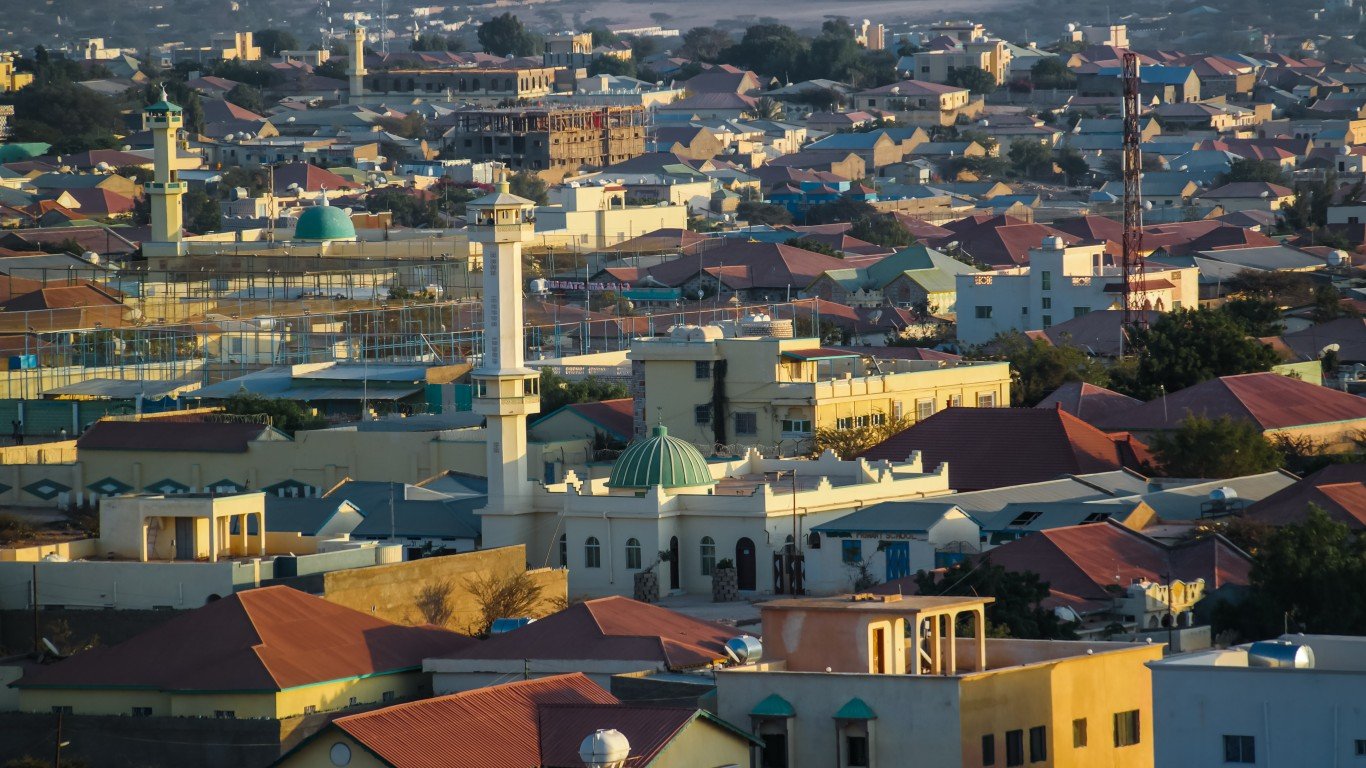
1. Somalia
> Corruption index score (0-100): 10
> Population: 14.7 million
> Region: Sub-Saharan Africa
Somalia is a failed state because of civil war, Islamic extremism, and drought, and is at the bottom of Transparency International’s Corruption Perceptions Index. The U.S. State Department has issued a “do not travel” advisory to the East African nation because of threats of crime, terrorism, and piracy. More than half of the country’s 15 million people live in poverty.
Sponsored: Want to Retire Early? Here’s a Great First Step
Want retirement to come a few years earlier than you’d planned? Or are you ready to retire now, but want an extra set of eyes on your finances?
Now you can speak with up to 3 financial experts in your area for FREE. By simply clicking here you can begin to match with financial professionals who can help you build your plan to retire early. And the best part? The first conversation with them is free.
Click here to match with up to 3 financial pros who would be excited to help you make financial decisions.
Thank you for reading! Have some feedback for us?
Contact the 24/7 Wall St. editorial team.
 24/7 Wall St.
24/7 Wall St.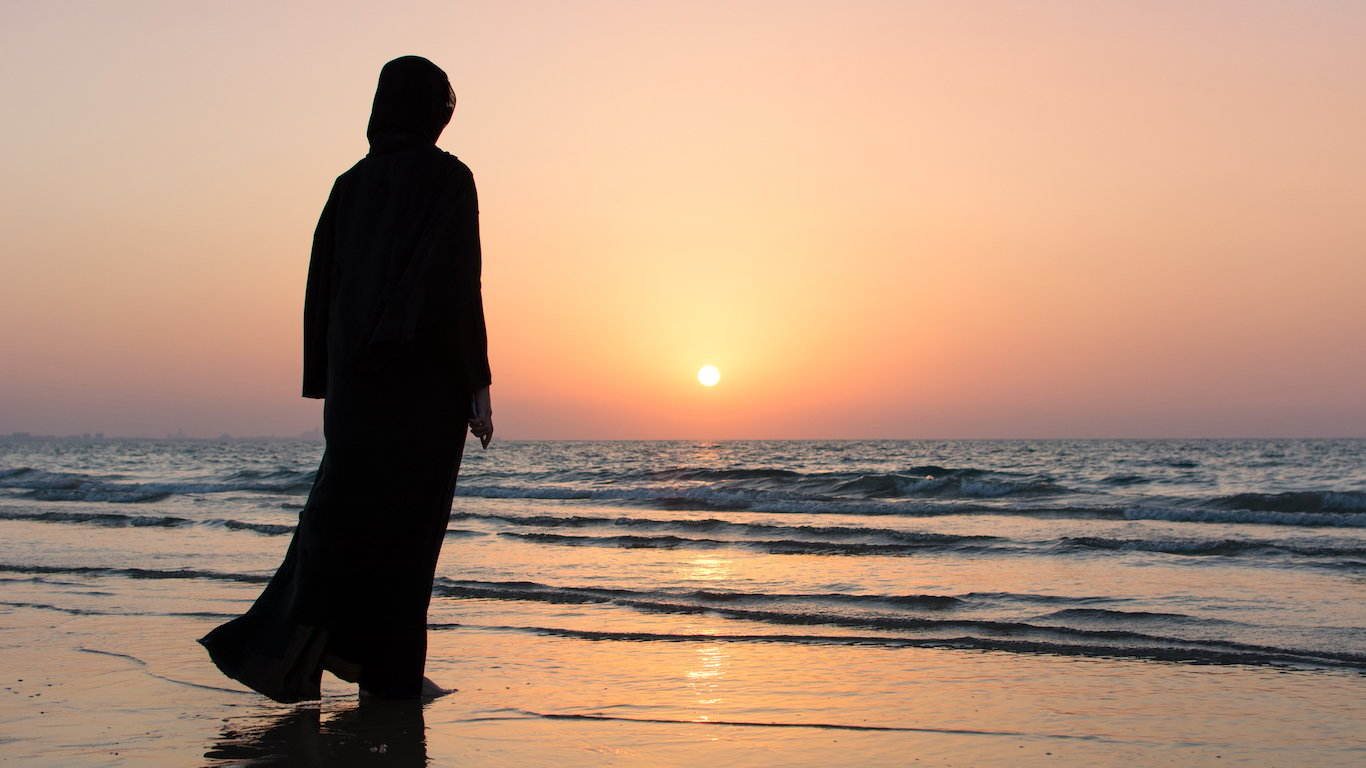 24/7 Wall St.
24/7 Wall St. 24/7 Wall St.
24/7 Wall St. 24/7 Wall St.
24/7 Wall St.
